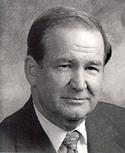“He ended one war and kept us out of any other,” is the tribute paid President Eisenhower.
Ike ended the Korean conflict in 1953, refused to intervene to save the French at Dien Bien Phu in 1954, and, rather than back the British-French-Israeli invasion, ordered them all out of Egypt in 1956.
Ending America longest wars may prove to be Barack Obama’s legacy.
For, while ending wars without victory may not garner from the historians’ the accolade of “great” or “near great,” it is sometimes the duty of a president who has inherited a war the nation no longer wishes to fight.
That was Nixon’s fate, as well as Ike’s, and Obama’s.
And as we look back at our interventions in the 21st century, where are the gains of all our fighting, bleeding and dying?
We know the costs — 8,000 dead, 40,000 wounded, $2 trillion in wealth sunk. But where are the benefits?
After Moammar Gadhafi fell in Libya, the mercenaries he had hired returned to Mali. The French had to intervene. In Benghazi, the city we started the war to save, a U.S. ambassador and three Americans would be murdered by terrorists.[amazon asin=125000411X&template=*lrc ad (right)]
Libya today appears to be breaking apart.
While Gadhafi was dreadful, what threat was he to us, especially after he had surrendered his weapons of mass destruction?
In Egypt, we helped overthrow President Hosni Mubarak and hailed the election of the Muslim Brotherhood’s Mohammad Morsi.
A year later, we green-lighted Morsi’s overthrow by Mubarak’s army.
Terrorism has returned to Egypt, the Sinai is now a no man’s land, and almost all Egypt hates us now.
The Shia regime we brought to power in Iraq has so repressed the Sunnis that Anbar province is now hosting al-Qaida. Fallujah and Ramadi have fallen. President Nuri al-Maliki is asking for U.S. weapons to retrieve Anbar and for U.S. personnel to train his soldiers.
Unlike the bad, old Iraq, the new Iraq tilts to Tehran.
Afghan President Hamid Karzai has refused to sign a status of forces agreement giving our troops legal protections if they remain. This could cause a complete U.S. pullout in 2014, leading to the return of the Taliban we drove out in 2001.[amazon asin=0307405168&template=*lrc ad (right)]
Sunday saw terrorism in the heart of Kabul, with a restaurant favored by foreign officials targeted by a car bomb, followed by a machine-gunning of dining patrons in which 21 were killed.
Americans have fought bravely there for a dozen years.
But how has our nation building in the Hindu Kush benefited the good old USA?
Pakistan, with nuclear weapons, has become a haven of the Taliban, perhaps the most dangerous country on earth. Anti-American elements in the Khyber region have, because of our drone attacks, been blocking a U.S. troop exodus to the sea.
How enduring is what we accomplished in Afghanistan?
Last summer, Obama, goaded by democracy crusaders and the War Party, was about to launch strikes on Syria when America arose as one to call a halt.
We did not attack Syria. Had we, we would have struck a blow for an insurgency dominated by the al-Nusra Front and Islamic State of Iraq and Syria. The ISIS goal? Detach Anbar from Iraq and unite it with jihadist-occupied sectors of Syria in a new caliphate.
Can we not see that Bashar Assad’s worst enemies are ours as well?[amazon asin=0312341164&template=*lrc ad (right)]
Syria’s civil war, which has cost 100,000 dead, with millions uprooted and a million in exile, has spilled over into Lebanon, where Hezbollah backs Assad and the Sunnis back the rebels.
The neoconservatives say much of this might have been averted, had we left a stronger contingent of U.S. troops in Iraq and supported the Syrian uprising before the jihadists took control.
They were for attacking Assad last summer, are for more severe sanctions on Iran now, and are for war if Iran does not give up all enrichment of uranium.
But the neocons have broken their pick with the people. For they have been wrong about just about everything.
They were wrong about Saddam’s WMD and a “cakewalk” war.
They were wrong about how welcome we would be in Iraq and how Baghdad would become a flourishing democracy and model for the Mideast.
They did not see the Sunni-Shia war our intervention would ignite.
They were wrong about how our interests would be served in attacking Libya.
 They did not see the disaster that would unfold in Pakistan.
They did not see the disaster that would unfold in Pakistan.
While we did not follow their advice and attack Syria, how have we suffered from having taken a pass on Syria’s civil-sectarian war?
From Libya to Lebanon, Syria to Yemen, Iraq to Afghanistan, the Maghreb and Middle East are aflame. What have we lost by getting out of the wars Obama found us in? How would we benefit from parachuting back into the middle of the fire?
Which raises a related question: Was Obama wrong in extricating us from the wars into which George W. Bush plunged his country?
How will history answer that one?




